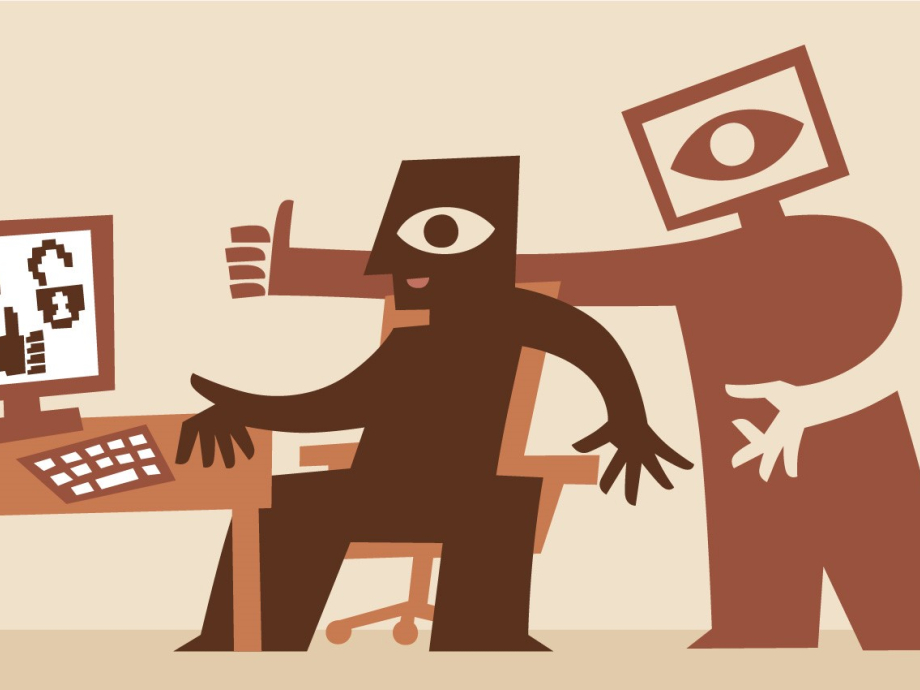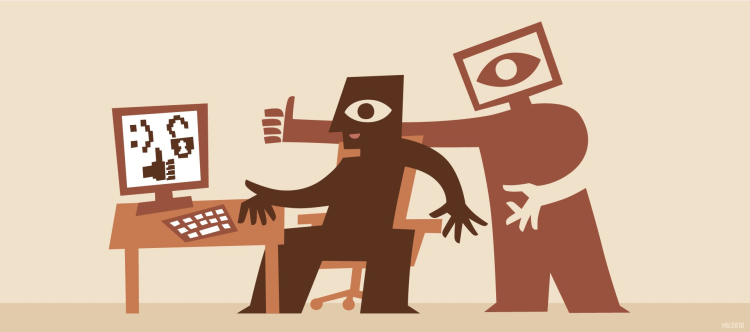KNVI: Let IT professionals identify violations of fundamental rights
IT professionals need to think consciously about digitisation and fundamental rights. That’s easier than it seems. They need to ask themselves the right questions, over and over.

By Leon Dohmen, Joan Baaijens and Liesbeth Ruoff, Board Members for Research and Training at the Royal Netherlands Association of Information Professionals
Reading time: 2-3 minutes
Be sure to read the other articles in the Decent Digitisation series.
We know that digitisation is putting pressure on public values and fundamental rights such as privacy, justice and security. We also know that there are a vast number of companies, institutions and people involved in building the digital society, so we cannot single out one person, business or institution as the villain or the hero. If only it were that easy. Everyone has a part to play in keeping digitisation on the right track and ensuring that respect for fundamental rights remains intact.
That was one of the conclusions of a round-table meeting on digitisation and fundamental rights organised recently by the Royal Netherlands Association of Information Professionals (KNVI). Despite that conclusion, there is no denying that IT professionals play a crucial role. Bear in mind that it is these professionals – the product managers, functional managers, project coordinators, software architects, programmers and testers – who build the digital applications that are transforming society.
We think that they should be more conscious of the dilemmas that arise between digitisation and fundamental rights. Fundamental human rights take precedence over commerce and digitisation. Businesses, institutions and government organisations should create work environments where it goes without saying that IT professionals ask critical questions if they sense that fundamental rights are at risk.

IT professionals are sometimes prevented from stating their objections
Their input may not be welcome. IT professionals work in organisations where other, often commercial, interests prevail. And those interests may clash with their ethical and professional standards. In other words, there may not be any occasion at which they can raise their hands and object. It’s vital that their workplace offers them the opportunity to do.
There may not be any occasion at which they can raise their hands and object
It’s also vital to set up project operational structures to escalate alerts and findings to the appropriate level of authority. For example, a client and a project coordinator can encourage their project team to speak up if they feel that an IT solution (under development) could be a threat to fundamental human rights.
That would give IT professionals the chance to speak up as soon as they detect a risk. They should also be able to broach this subject with the product owners and/or management. In real life, that is seldom if ever the case.
How IT professionals can draw attention to fundamental rights
The best way for IT professionals to draw attention to fundamental rights is by asking the right questions at regular intervals and in their everyday work. For example:
- Who will win and who will lose with this technology?
- Who is most likely to be hurt by this technology?
- What unwanted side-effects might this technology have?
IT professionals can ask these questions at regular intervals and at different points in time, in specific situations.
- For example, they can embed them in the popular ‘Scrum’ agile process.
- They can incorporate them into the product backlog as non-functional questions or standard ‘stories’. That ensures that both the development team and the product owner never lose sight of them.
- They can also make the questions part of their sprint review, when they demonstrate a tested, operational IT solution to stakeholders or to the people who will be working with the technology and in turn get feedback from them. The feedback round is another opportunity to ask the foregoing questions.
Businesses and government have a duty to protect
Businesses and government have a duty to protect fundamental human rights as digitisation proceeds. They must not permit these rights to be tampered with in the digital society. And they are the actual builders of the digital society, IT professionals implicitly accept the same duty.
By Leon Dohmen, Joan Baaijens and Liesbeth Ruoff, Board Members for Research and Training at the Royal Netherlands Association of Information Professionals
Read more
Be sure to read the other articles in the Decent Digitisation series, and the related reports:
- Human Rights in the Robot Age. Challenges arising from the use of robotics, artificial intelligence, and virtual and augmented reality
- A fair share. Safeguarding public interests in the sharing and gig economy
- A never-ending race. On cyberthreats and strengthening resilience
- Urgent upgrade. Protect public values in our digitized society